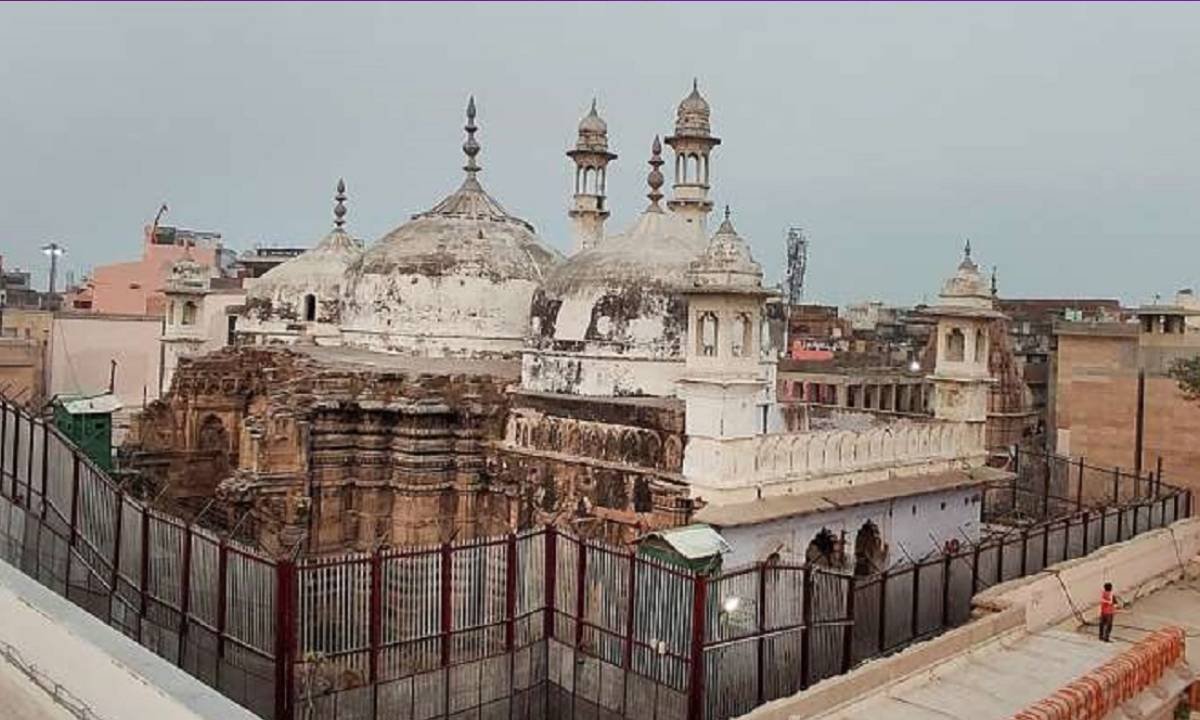
Today it was a gigantic relief to all the Hindus who are waiting to worship Shiv Ling in Gyanvapi Mosque. Varanasi court upholds maintainability of Hindu side’s petition, hearing to continue. The court rejected the Muslim side’s petition and said the suit is maintainable. The next hearing of the case is on September 22. They submitted the report of the filming to the Varanasi court in a sealed cover, but the Hindu petitioners controversially leaked details just hours later. The report claimed a “Shivling” or relic of Lord Shiva had been found in a pond within the mosque complex used for “Wazoo” or purification rituals before Muslim prayers.
A court then banned large namaz gatherings in the high-profile mosque. The gatherings should be limited to 20 people. It challenged the filming inside the mosque in the Supreme Court by the Gyanvapi mosque committee, which said the move violates a 1991 law (Places of Worship Act) that maintains the religious status of places of worship as of August 15, 1947. The Muslim petitioners argued that “such petitions and sealing of mosques will lead to public mischief and communal disharmony, will affect mosques across the country.”
In May, the Supreme Court assigned the case to the city’s most senior judge, referring to the “complexity and sensitivity” of the dispute. The Gyanvapi mosque located in Prime Minister Narendra Modi’s constituency (Varanasi), is one of the several mosques that Hindu hardliners believe were built on the ruins of temples. The Hindu petitioners have said they will seek carbon dating and a proper archeological survey to establish that a temple stood on the land.
Security was tightened and prohibitory orders under Section 144 were imposed in Varanasi as a district court will pronounce the verdict on the maintainability of the suit in the Gyanvapi mosque-Shringar Gauri case on Monday. District Judge A K Vishvesh had last month reserved the order till September 12 in the communally sensitive matter.
Five women had filed the petition seeking permission for daily worship of Hindu deities whose idols are said to be located on an outer wall of the Gyanvapi mosque, which is located close to Kashi Vishwanath temple. Following this, a Varanasi court ordered the survey of the mosque complex. After the survey, it was claimed that a ‘shivling’ was found in the mosque compound.
Meanwhile, the Anjuman Intezamia Masjid Committee has said the Gyanvapi mosque is a Waqf property and has questioned the maintainability of the plea. Madan Mohan Yadav, a lawyer of the Hindu side, had said that the mosque was constructed after demolishing the temple. According to the petitioner, a self-styled Jyotirling of Lord Vishwanath in Kashi (Varanasi) is in the mosque complex. The petitioner also claimed that in 1669, Mughal Emperor Aurangzeb had destroyed a portion of the Kashi Vishwanath temple and had built the Gyanvapi Mosque. The petitioner wants the court to declare that Muslims have no right to occupy the Gyanvapi mosque and their entry to be banned.
According to the defence, there was no temple in the Gyanvapi complex and the mosque was standing on the site from the start. The Supreme Court said on July 21 that it will await the Varanasi district judge’s decision on the Gyanvapi mosque committee’s application. The SC bench then posted the matter for further hearing in the first week of October after the outcome of the proceedings before the district judge.
On May 20, the apex court transferred the civil suit filed by Hindu devotees from civil judge (senior division) to the district judge of Varanasi in the Gyanvapi. Citing the “complexities” and “sensitivity” of the issue, the SC said it is better if a senior judicial officer having an experience of over 25-30 years handles this case. The top court had made the observation that the process to find out the religious character of a place of worship is not barred under the Places of Worship Act of 1991. This came after the commission appointed by a district court to conduct a video surgery of the Kashi Vishwanath temple-Gyanvapi Mosque complex submitted its report on May 19.

